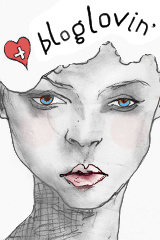Ever noticed how, after you drank a little, you had a mild headache, felt thursty - or a complete hangover?
It is the same for your skin, just minus the headache.
If you have ever been to a party, you would have noticed that the toilet is always occupied.
That is because alcohol is very good at draining the water right out of your body.
It does the same for your skin. After partying a bit more than usually, I noticed some dry patches on my nose, where I always see dryness first (weird how I get dry on places people usually get oily, right?). It felt dull, dehydrated and my
Whilst alcohol not only dehydrates your skin, it also takes away the greasyness. In most tonics, especially those for combination to oily skin, is alcohol. But then the skin thinks: "Wait, what happened now?" and produces even more oil. See the viscious cycle here? I do!
But not only is alcohol bad for hydrating the skin, it is also bad for your skin cell growth and therefore bad for the regeneration of your skin! It breaks down the barrier of your skin (which does benefit other ingredients because they work better, but should we really harm our skin that much?). A study showd that, using a solution with only 3% alcohol, far less than what is usually used in most skincare products, it reduced skin cell reproduction by 26%. In only two days.
If you are using a tonic with alcohol, it slows down the healing process of pimples, dehydrates your skin and makes it even more oily.
So, why do companies put alcohol in their products? Because it is inexpensive. That's all.
There is one exception: Fatty alcohols like Cetearyl Alcohol, Stearyl Alcohol or Cetyl Alcohol. These are often used just for making a cream more creamy and are not bad at all for your skin.
So, what do we learn from that for our skin?
1. Alcohol is bad.
2. Fatty alcohol is okay.
3. If you drink alcohol, rehydrate your body with a non-alcoholic beverage (try drinking 3-4 glasses of water before going to bed atfer a long night out. My ultimate advice against a hangover!) and rehydrate your skin with a nice, non-alcoholic moisturizer.
4. Alcohol is really bad for your hair, too. Just sayin'!
Take a look at your product's INCI list and if they contain Alcohol denat., Alcohol or Ethanol, strike them out of your skin care. After all, you use moisturizer for moisture, not for dehydration!
I hope you learned something and I helped you at least a little bit. Do you have any requests for upcoming skincare posts? Tell me in the comments below or tell me on Instagram (@imainvisabel).
Source: http://www.paulaschoice.com/expert-advice/skin-care-basics/_/alcohol-in-skin-care-the-facts
~
Habt ihr jemals bemerkt, dass, wenn ihr was getrunken habt (und ich meine keinen Kakao), ihr Kopfschmerzen hattet, durstig wart - oder einfach einen kompletten Kater hattet?
Es gilt das gleiche für die Haut - nur ohne die Kopfschmerzen.
Wenn ihr jemals auf einer Party wart, werdet ihr bemerkt haben: Die Toilette ist einfach IMMER besetzt. Alkohol entwässert halt sehr gut (was auch den Kater verursacht, zusammen mit Elektrolyt-Mangel).
Bei eurer Haut tut er das gleiche. Als ich mal wieder ein wenig mehr gefeiert habe als sonst, merkte ich direkt trockene Stellen auf meiner Nase, wo ich immer am schnellsten Trockenheit bemerke (schon komisch, dass ich dort trocken werde, wo andere ölig sind, oder?). Meine Haut war kraftlos, trocken und mein sowieso eher wenig existierender Glow war noch mehr weg als so schon.
Alkohol dehydriert nicht nur die Haut, sondern macht sie auch weniger ölig. In vielen Gesichtswassern, insbesondere denen für Mischhaut, unreine und ölige Haut, ist Alkohol drin, denn dann erhält man ein schön mattes Finsih. Doch die denkt sich: "Wo ist das ganze gute Öl hin?" und produziert einfach mehr. Könnt ihr den Teufelskreis sehen? Ich schon!
Aber Alkohol ist nicht nur schlecht für das Hydratisieren der Haut. Er ist auch schlecht für den Zellwachstum und somit auch schlecht für die Regeneration! Es zerstört die natürliche Barriere (und macht sie dadurch durchlässiger für andere Stoffe, sodass diese besser wirken können, aber wollen wir unsere Haut wirklich so stark beeinträchtigen?). Eine Studie hat gezeigt, dass wenn man eine Lösung mit 3% Alkohol auf die Haut gibt (man sollte bedenken, dass in den meisten Produkten viiiiel mehr Alkohol drin ist), verlangsamt sich das Zellwachstum um 26%. In nur 2 Tagen.
Also, wenn ihr ein Gesichtswasser mit Alkohol benutzt, verlangsamt es den Heilungsprozess, entzieht der Haut Feuchtigkeit und macht sie nur noch öliger.
Die Frage wäre nun also, wieso denn überhaupt Alkohol in den Produkten vorhanden ist. Ich sag's euch: weil es verdammt günstig ist. Nur deswegen.
Es gibt eine Ausnahme, nämlich Fettalkohol wie Cetearyl Alcohol, Stearyl Alcohol oder Cetyl Alcohol - einfach mal auf Codecheck nachschauen. Diese machen die Creme einfach cremig und tun eurer Haut nichts Böses.
Also, was lernen wir daraus für unsere Haut?
1. Alkohol ist schlecht.
2. Fettalkohol ist okay.
3. Wenn ihr Alkohol trinken solltet, dann gebt eurem Körper mit einem nicht-alkoholischen Getränk Wasser zurück (versucht, am Abend vorm Schlafen gehen3-4 Gläser Wasser zu trinken. Das ist der beste Tipp gegen einen Kater!) und schenkt eurer Haut Feuchtigkeit mit einer nicht-alkoholischen Creme.
4. Alkohol ist auch schlecht für die Haare - wollte ich nur mal erwähnt haben.
Schaut einfach mal auf die INCI-Liste eurer Produkte und wenn Alcohol denat., Alcohol oder Ethanol enthalten ist, schmeißt es aus eurer Hautpflege-Routine. Man benutzt ja Feuchtigkeitscreme für Feuchtigkeit, nicht für Trockenheit.
Ich hoffe, ich konnte euch mit diesem Post helfen. Habt ihr irgendwelche Vorschläge für weitere Hautpflege-Posts? Schreibt sie mir in die Kommentare oder bei Instagram (@iaminvisabel).





No comments:
Post a Comment